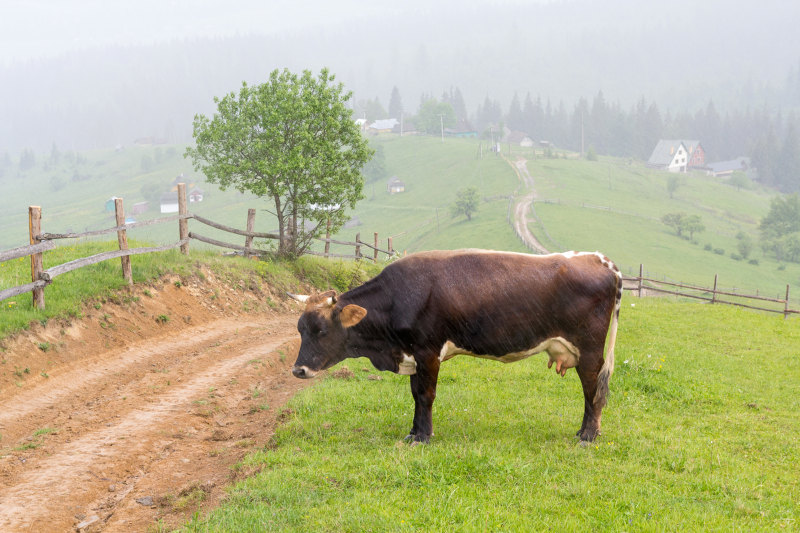“La Niña” phenomenon transitions to neutral phase, but tropical cyclone season will be more intense
San Jose, 30 May 2018 (IICA). The transition of the “La Niña” phenomenon to a neutral phase, and a less active but more intense tropical cyclone season compared to average conditions - these are two of the main projections for the May to July 2018 period, as detailed in the “Climate Outlook for Mesoamerica” report. The report was presented during a virtual seminar organized by the Inter-American Institute for Cooperation on Agriculture (IICA), which sought to analyze the potential implications of these conditions on agricultural health.

The abovementioned climate outlook is issued three times a year within the framework of the Mesoamerican Climate Forum, which is made up of specialists from meteorological services across the region, and is coordinated by the Regional Water Resources Committee (CRRH). The results of the report provide key input to guide decision making regarding risk management, the identification of opportunities and threats, and the development of adequate strategies for dealing with climatic events.
“During the period for which the outlook was prepared, we will not experience ‘El Niño’ or ‘La Niña’ conditions; however, it is worth noting that several models consistently point to a 50% probability of experiencing an ‘El Niño’ scenario toward the end of the year,” stated Berta Olmedo, Executive Secretary of CRRH, during the event held at IICA Headquarters.
Olmedo stated that there would be an estimated 12 to 16 tropical cyclones (storms and hurricanes) during the year, of which half would become hurricanes. In 2017, there were 17 cyclones, of which 10 were hurricanes.
“Temperatures in the Atlantic basin are very close to average values; this supports our theory that we will not experience a cyclone activity similar to that of 2017, although it will be more intense than the average activity during this season. The number of cyclones may fluctuate between 12 and 16, but it is not possible to determine the path and intensity of each so many months in advance,” she added.
Impact on agricultural health
During the seminar, Carlos Roca, Coordinator of the Climatic Variables and Agricultural Health Program of the International Regional Organization for Plant Protection and Animal Health (OIRSA), discussed the risks for agricultural health in the region, in light of the climate outlook for the May to July period.
According to Roca, some of the main risks include highly pathogenic avian influenza, bovine piroplasmosis and anaplasmosis (tick-borne parasitic infections), vesicular diseases, respiratory disease complexes, and equine encephalomyelitis, a rare viral disease transmitted through the bite of an infected mosquito.
Regarding plant health, Roca stated that potential risks include coffee leaf rust, the coffee berry borer pest, locusts, citrus greening disease (HLB), and Sigatoka leaf-spot disease of banana plants.
“It is important to clarify that this outlook, which is prepared using methodological instruments and based on the analysis of specialists, details the probable presence, incidence, or spread of possible pests and diseases, in order to alert health services and surveillance systems so that they can intensify their control efforts,” stated Roca.
OIRSA manages a geoportal where interested users can find more information on the risk of specific pests and diseases in each country or region, based on the information included in the climate outlook.
Sacha Trelles, IICA Specialist in Agricultural Health and Food Safety, stated that having access to timely and valuable information, such as that which was presented during the virtual event “regarding various sanitary and phytosanitary risks, will enable countries across the region to make better decisions as well as strengthen the capacities of their governments, institutions and technical personnel, who, in turn, can take the necessary precautions to face the potential risks identified by the seasonal outlooks.”
About IICA
IICA is the specialized international agency for agriculture of the Inter-American System. Its mission is to stimulate, promote and support the efforts of its 34 Member States to achieve agricultural development and rural well-being through first-class international technical cooperation.
More information:
Daniela Medina, IICA Specialist in Agriculture and Climate Change.
Full video of the online seminar
Climate Outlook for Mesoamerica: May to July 2018 (in Spanish)
Climate and Agricultural Health Newsletter - May-July 2018 (in Spanish)